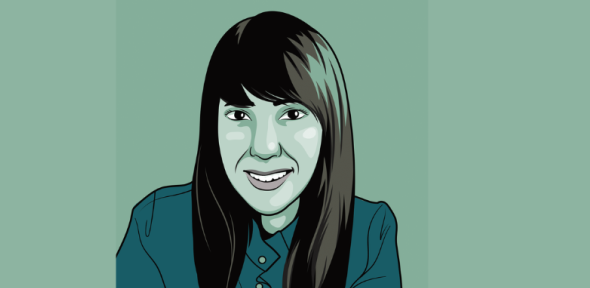Institute of Continuing Education (ICE)

Submitted by Amy Kingham on Fri, 24/06/2022 - 09:38
Teaching Associate, Creative Writing
I came to writing and academia in a slightly roundabout way, having first received a BSc in biology. Immediately after my undergrad, I did my MFA at the University of Oregon, which had a strong critical component. There, I discovered my love for teaching and my interest in academic research. Three years later, after pursuing a Bachelor of Education and working briefly as a QA, I moved to the UK for my PhD in creative writing at Edinburgh. I then co-founded the Scottish BPOC Writers Network and, later, held postdoctoral fellowships at Edinburgh and Liverpool.
Studying creative writing offers so much. Dedicating focused time to your work and studying craft will enhance your writing, giving you the skills and support necessary to not only shape your creative projects, but also find your voice as a writer. Perhaps most importantly, in all the programs that I’ve joined both in and out of university environments, studying creative writing has offered me a room full of people who are genuinely eager to read and comment on my work. And, in the best cases, studying this subject gave me a sense of belonging and community.
Creative writing is often a medium where people find solace and comfort during times of conflict and unrest. I think there is a very real power in storytelling via all genres. These stories document and comment on the world we’re presently living in, and by doing so, provide a way for us to relate to one another. Creative writing is an important, evocative, and engaging way to share knowledge, raise awareness, and instigate change.
My first full-length poetry collection, Another Way to Split Water, is coming out in September 2022 from Polygon Books in the UK and YesYes Books in the US. I have published other work, including pamphlets Hinge and Faces that Fled the Wind, and the collaborative lyric essay, Second Memory, which I co-wrote with Pratyusha.
As a Junior Anniversary Fellow at IASH, Edinburgh, I’ve undertaken a research project centred on ‘radical landscape poetry’ by women and nonbinary writers of colour. It involves quite a lot of practical impact work, like writing workshops and presentations. I’ve also continued my work with the Ledbury Poetry Critics program as a co-organiser, where I previously worked as a postdoctoral fellow researching race and poetry criticism. Recently, I received an Explore and Create grant from Canada Council for the Arts to begin research and writing on my second collection of poetry.
Different books have influenced me at different stages of my writing career. Bhanu Kapil’s The Vertical Interrogation of Strangers first made writing poetry feel possible. Richard Siken’s Crush and Brigit Pegeen Kelly’s Song taught me so much about language and narrative. As I move toward writing more hybrid, inter-genre work and lyric essays, I find myself drawn to collaborative pieces like Threads by Sandeep Parmar, Nisha Ramayya, and Bhanu Kapil; decolonial, queer-feminist essays like The Breaks by Julietta Singh; and reclamations of ecological writing like that in recent work by Jason Allen-Paisant.
I particularly loved writing in the ‘Hobbit House’ at Moniack Mhor, next to a log fire and with a view of the highlands. I also like to write outdoors if the weather is right. I have wonderful memories of writing in outdoor cafes on marinas with my best friends, next to the water when it’s dark outside. But in ordinary life, I’m pretty flexible. While I love writing in cafes, the pandemic forced me to carve out a writing practice at home. I’ve learned that, while I can write almost anywhere, I need to separate creative spaces from ‘other work’ spaces.
Currently, I’m working on a new book of lyric essays that weaves together ecological writing and poetic theory. This is in its very early stages, where I’m spending a lot of my time thinking, experimenting, and writing into the project. I’m also writing my second poetry collection, which at the moment, seems to be circling intertextuality and response poems.
I love being outdoors and in nature, and especially love camping and hiking. Some of my favourite places include the Rocky Mountains and the Pacific Northwest, and I’ve more recently enjoyed visiting the east coast of Scotland. I also like dancing, travelling, reading, seeing my friends and family, watching films and TV, and having a really good laugh with my sisters.